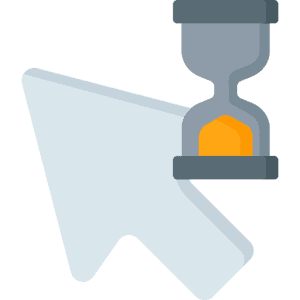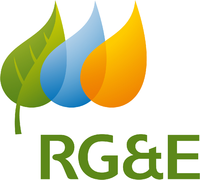Cheap Electricity Rates in New York
New York electricity is an expensive affair. The New York electricity rates are the ninth highest in the United States and even low average energy usage doesn’t make a New York electricity bill more affordable. Luckily, businesses and residents of New York can save money by comparing electricity rates in their zip codes.
Comparing electric rates in NYC enables New Yorkers to choose their energy service company (ESCO) and switch to a better energy plan thanks to the deregulated energy market.
Compare New York Electricity Rates
There are quite a few utility companies delivering electricity to New York’s doors. Depending on which one of them serves your area, you pay different electricity rates. You are also able to compare utility companies’ default power rates against retail energy suppliers and switch when you find a good energy plan.
Lowest electric rates in NY today:
New York Energy Market Data
Last updated October 2024
- The average New York residential electricity rate was 21.6¢/kWh.
- The average New York commercial electricity rate was 17.4¢/kWh.
- The average monthly energy expenditure for New Yorkers was $303, which was similar to that of Wisconsin and Nebraska. The following are the estimated typical monthly electricity costs for New York: Electricity cost: $102. Natural-gas cost: $68 per month.
- The average daily usage of electricity in New York City is 11, 000 Megawatt-hours. One megawatt is the energy needed to power 100 homes! (1 Megawatt = 1,000 KiloWatt = 1,000,000 Watt)
Source: New York energy data from The U.S. Energy Information Administration (EIA)
| . | Main |
|---|---|
| Average New York Residential Energy Rate | $0.2410 per kWh |
| Average New York Commercial Energy Rate | $0.1333 per kWh |
| % of Renewable Energy in New York | 30% |
| New York Deregulation Status (Yes/Partial/No) | Yes, both electricity and natural gas |
| Main Source of State Electricity - New York | Natural Gas, Nuclear, and Hydro |
| Average New York Household Energy Use - Month | 913 kWh per Month |
| Average New York Household Energy Use - Year | 11,000 kWh per Year |
| Average New York Monthly Electric Bill | $192 per Month |
As every energy provider in the New York state tries to come up with the best rates to offer to New York’s energy market, there is a lot of competition that New York consumers can benefit from. Far from cheap, New York electricity costs over 24 cents per kilowatt-hour – comparable to the most expensive states. With this in mind, always look for electricity prices that are more in line with your budget and offer freebies.
As the average New York electric bill is $192, way higher than the national average, it pays off to browse for cheaper energy plans. As the demand for these has increased since energy market deregulation back in the late 1990s, there are many options for every pocket and home budget. Alternatively, selecting an energy plan with freebies that coincide with your energy habits could be the next best thing.
New York State Electricity Rates Overview
In May 2022, electricity in New York is among the most expensive in the country, with consumers paying an average of 21.6 cents per kWh. For comparison, the national average is 13.83 cents per kWh.
The state of New York is full of contrasts –you can go from the densely populated metropolitan areas of NYC to rugged mountains and plentiful land. The contracts apply to New York electricity rates as well – New Yorkers have the 7th lowest average usage in the US and yet they are slapped with the third-highest average electricity rates in the nation.
New York energy companies increase their default service rates often – to fund the expansion of existing networks or the state-mandated energy-efficiency programs – costing customers hundreds of dollars in electricity bills.
When you switch energy companies, your local power company will continue to deliver electricity safely to your door through the state power lines. It’s also whom you call in case of an electric or natural gas emergency. The only thing that will change will be the supply portion of your monthly bill – which will now have the name of your new electricity provider and a better supply rate!
Energy Deregulation in New York
New York residents have had the opportunity to shop for their energy provider since 1996. That’s when the New York Public Service Commission (PSC) separated the charges associated with delivering energy to your home from the charges for the energy itself. In practice, it allowed any Energy Service Company (ESCO) to offer competitive New York electricity rates to consumers with energy choices.
Today, the New York Public Service Commission (PSC), established in 1907, continues to oversee the energy market, allowing nearly 20 million homes and small businesses in the state to shop for New York electricity rates. The agency also regulates New York’s natural gas, steam, water, and telecommunications industries.
NY Power to Choose
The New York official state energy choice website is called NYS Power to Choose. In it, residents searching for cheaper electricity or gas can see the New York electricity rates available in their zip code.
You can choose from electricity, gas, and also 100% renewable energy rates. One thing to keep in mind is your energy usage! The energy rate offers are linked to specific monthly usage, so you should always check the estimated usage for the advertised rate.
ElectricRate also allows you to compare available NY electricity rates and retail energy providers, but our web-based comparison tool also offers additional benefits.
 | Switch to your new service in a few clicks - When you enter your zip code on ElectricRate, you will not only see all rates, with the cheapest deals displayed on the top of the list, but you can also sign up immediately with just a few clicks. |
 | All the information you need in one place - As customers, we all like excellent customer service and extras. That's why at ElectricRate, we carefully review all major suppliers and compile information about customer support hours, ratings, and extra benefits that they provide, such as attractive referral programs, complementary goods, and value-add services. |
 | Get the support you need: Our team at ElectricRate is ready to provide ongoing support to customers, including helping you choose the plan that best fits your lifestyle, notifying you when your plan is about to expire and any additional support you might need. All you need to do is give us a call at 1-888-307-9636 or email [email protected] |
Utility Companies in New York
Consolidated Edison

ConEd provides electric service to more than 3 million residents in New York City and Westchester County, New York, an area of 660 square miles (1,700 km2) with a population of nearly 9 million.
- Current standard electricity rate: 11.57 ¢ / kWh
National Grid

National Grid is an energy delivery company that serves more than 20 million households and small businesses in New York, Massachusetts, and Rhode Island. Its NY service area covers the majority of northern and eastern New York.
Niagara Mohawk Power Corporation is a New York State utility company, which was acquired in 2000 by National Grid. Its service area and Price to Compare in New York today are now the same as the National Grids.
- Current standard electricity rate: 7.26 ¢ / kWh
Orange & Rockland

The utility provider Orange & Rockland is a local utility company that serves communities in Orange, Rockland, and Sullivan counties in New York.
- Current standard electricity rate: 6.67 ¢ / kWh
New York State Electric and Gas (NYSEG)

New York State Electric, a subsidiary of AVANGRID, serves 902,593 electricity residents across more than 40% of upstate New York. In October 2020, New York utility regulators approved a three-year plan to increase electricity rates, resulting in a 24.5% increase in customer electric delivery bills.
- Current standard electricity rate: 5.05 ¢ / kWh
Central Hudson (Gas and Electric)

Central Hudson is a regulated local utility provider responsible for a defined service territory of New York State’s Mid-Hudson River Valley.
- Current standard electricity rate: 6.12 ¢ / kWh
Rochester Gas & Electric

Commonly known as RG&E, the New York utility service provider for nearly 700,000 households and small businesses in and around the city of Rochester.
- Current standard electricity rate: 5.03 ¢ / kWh
Energy Plans & Products in New York
Energy plans are like shoes. One size does not fit all. Navigating through complex information about power rates can be confusing and can ultimately deter you from shopping for better New York electricity rates. Below is all you need to know about different products that New York offers to customers:
| Plan | Description | What's Good? | What's Bad? |
|---|---|---|---|
| Time of Use Tariffs | You pay a different rate based on the time of day (higher rates during peak hours and lower rates during non-peak hours) |
|
|
| Renewable Energy Credits (RECs) | By purchasing 1 REC, you purchase the environmental benefits of 1MWh of renewable energy generation. |
|
|
| Green / Renewable Energy Plans |
|
|
|
| Prepaid Plans | This plan lets you pre-purchase power for your home at a set price, like a prepaid cell phone. |
|
|
| Variable Rate Plans | Your per-unit gas and electricity costs can vary at the discretion of your supplier. |
|
|
| Fixed Rate Plans | Your unit price for gas and electricity will remain the same for the duration of the plan. |
|
|
Is Switching Providers Worth It?
It can certainly be worth it! The state utility companies are constantly trying to increase the electricity rates they charge to their customers.
If you choose a competitive Electric Service Company (ESCO), you can avoid these rate increases by locking in a cheaper rate. However, you will only save money if the new rate is lower than your current Price to Compare (which you will find on your electric bill).
Also, remember to check if you are not locked in a fixed-rate contract. If you decided to leave your plan early, you might have to pay early termination fees, which would cancel out the savings from a cheaper rate.
How To Choose The Right Plan
Switching to a new energy supplier might seem complicated, but we promise you – it isn’t! Follow these simple steps to find competitive rates in New York:
Analyze Your Current Costs
Look at the electric supply charges on your utility bill, which will be expressed in cents per kilowatt-hour. This number is called your Price to Compare and your primary objective is to find a plan with a lower number.
Review Your Current Contract and Plan
Switching suppliers in New York can be costly if you are the type of person that tends to skim through the fine print in your contract. For example, if you are currently on a fixed-rate electricity plan, there might be a penalty from your energy provider for switching out too early – check if you are able to switch without a fee.
Compare Energy Plans
Use our online search and shopping tool to see available electric rates for your zip code. Find the electricity provider with the lowest rate and if you like what you see, you can sign up right there and then! A pro tip – We all like good customer service. That’s why at ElectricRate.com, we only promote rates from New York’s reputable power providers, based on their prices, electricity plans, customer service, and extras! Before you sign up, read our review of your new retail electric provider to avoid surprises.
Getting to know your New York Electricity Bill
Even if you compare New York electricity companies and their energy rates, you can still be surprised that there are two types of charges on your electricity bill. Besides these, homeowners can also find some surcharges made to their amount due, which is another point of confusion. While the surcharges differ among providers, we will focus on the two biggest charges to your homeowners’ energy bill, the utility delivery charge, and the supply charge.
As every deregulated energy market has split utility companies and power providers, it is normal and necessary to have two charges instead of one, sum charge, or sum total. This gives more transparency and enables you to see how much you pay towards electricity prices and how much you pay towards energy service companies. Your rights for transparency and energy choice are fully respected this way.
Utility Delivery Charges
There is not much competition when it comes to utility delivery charges. These charges are present on every energy bill and homeowners across the state have to pay for them. As these charges go to the utilities, we know that they are used to:
- Deliver power to your home,
- Offer a direct way to invest in grid stability and reliability,
- Offer a way to invest in the modernization of the energy system, which means better service, fewer power outages, and better service overall.
Supply Charges
On the other hand, supply charges and any surcharges connected to them apply to the amount of energy you’ve used. Although the utility delivery charges are also charged in cents per kilowatt-hour, the price per kilowatt-hour here actually relates to the energy you use around the year. This price of electricity covers the costs that your power provider has to actually purchase energy for your use on the wholesale energy market.
Factors that Affect Electricity Rates
Whichever energy rates you may pay (per kilowatt-hour), you should always be able to compare New York electricity plans and decide on what type of plan you want to use. Utilities do not come cheap, and knowing what kind of energy plan is the best for you is a must. There are several types of plans, all with different pricing and payment schemes:
- Fixed-rate energy plans,
- Variable-rate energy plans,
- Green energy plans (such as solar energy plans),
- Prepaid energy plans,
- Etc.
In all these cases, you should know that the price of electricity you pay depends on a number of factors. Even if you switch your power provider, or move to a new address and part with the old utility company, you should know that you will still be the price of electricity depending on these factors. Let’s learn more about them.
Fuels
The number one factor that affects New York energy rates is the price of the fuel used to generate electricity. Fuel price is, itself, subject to many different factors, including political ones, as well as the sheer demand and supply, as we could see in the past. As we see a rise in fuel prices, people also see a rise in their electric bills. Even if you switch your power provider, if the electricity is made using the same fuel, you will still be paying more for the electricity.
However, depending on the source, fuels can cost differently. Coal is, for example, very cheap, but every kilowatt-hour usage of this energy brings a lot of costs to health and the environment. Natural gas is comparable in price but still pollutes. Nuclear fuels, on the other hand, are notoriously expensive but pack a punch that no other fuel could ever approach.
Power Plant Prices
Power plant prices are difficult to estimate, especially since these large projects often cost more than is assumed at the beginning of their building. All plants share the same costs: building, operation, maintenance, fuels, etc. All these factors contribute to the energy price you pay, which is, at this point, far from complete.
Sometimes, people may wrongly assume that a cheaper power plant means cheaper energy and vice versa. This does not have to be true. If we take a nuclear power plant as an example, we can see that they are very expensive to build but provide a reliable source of cheap electricity for around 40 years. Solar power plants, on the other hand, are the cheapest to install, but provide an intermittent source of power with little power output compared to the surface area they cover.
Local Transmission and Distribution Systems
All registered power providers have to send electricity through the local transmission and distribution system called the grid. Homeowners share access to this grid, and this way entire communities get powered. However, it takes a lot of money to maintain this network of power lines and poles, so getting your home powered usually means paying a part of the cost to the utility company. The average utility charge has fixed costs and variable costs.
Area Regulations
Your local area regulations also affect the electricity prices you pay. They are there to protect your rights to access the grid and a reliable power supply. They are also there to ensure that the minimum and maximum price for every kilowatt-hour of usage is set so that your providers cannot overcharge. These regulations protect you as a customer and enable you to rightfully practice your right to energy choice. You can usually contact your local municipality office if you have any questions about these regulations.
Weather Conditions
Local weather conditions also affect the electricity rate you pay on your New York average monthly bill. As it goes, weather extremes usually reduce the efficiency of power plants, making them produce less energy than would be the case in milder weather. On the other side of the spectrum are all energy consumers, businesses, and residential customers, whose energy use skyrockets during cold and hot days, as heating and ACs get cranked up to keep the houses warm.
Energy Providers vs Utility Companies
If you live in a deregulated energy market, such as the New York energy market, you may have noticed that there are two companies that bring power to you. These are energy providers and utility companies. Energy providers provide power for you and your energy needs. They do so by purchasing power on the wholesale market and then sending it to you. To deliver power to your home, they rely on utility companies. These are the companies that manage the grid and power transit and ensure that the grid is up to date and fully operational.
FAQs
Below are answers to some of the questions you might have about New York electricity rates.
How much is electricity in NY?
The NY average electricity rate is 14.34 cents/kWh, as compared to the US national average of 10.53 cents per kWh. That means that a New York household or a business with a monthly energy usage of 1000 kWhs will pay a bill of approximately 140 dollars. What’s more, the NY public utilities increase their default service rates often to fund the expansion of existing networks or the state-mandated energy-efficiency programs.
What is a good price for electricity per kWh?
As a rule of thumb, you will save money on your energy plan if you find an energy rate that is lower than your current one. Then, no matter how much energy you use, you will be paying a lower price for each kWh of consumed energy. However, some plans have a fixed-term contract, so if you decide to exit early, you might pay a hefty early termination fee. Finding great rates can be easy, just enter your zip code on our website and find New York’s best electric rates, energy suppliers, and renewable energy options.
What is the electricity supply charge?
The energy supply charges on your electricity bill cover the cost of generating electricity. This could, for example, be the cost of operating a nuclear power plant or the cost of setting up a solar or wind farm. In states with energy deregulation, such as New York, you can choose among competitive energy suppliers that offer a better price per kWh, than the one from your local utility.
How much power does NYC use per day?
New York City uses 11, 000 Megawatt-hours of electricity on average each day, which far exceeds the consumption of Tokyo, the world’s largest megacity. That being said, NYC has also been called the United States’ greenest city, because of its low per-capita consumption, energy efficiency, and use of solar energy. New York has a considerable amount of solar potential and has consistently been in the top 10 US solar markets.
Conclusion
The state of New York has some of the highest electricity rates in the US. With over 20 cents per kilowatt-hour, it is definitely a state where it pays off to use sites such as Electricrate to ensure a stable and reliable power supply. With all this being said, you should visit Electricrate and compare energy plans. As it goes, there are always ways to save money and energy, without turning off all the lights in your home.
Updated on
